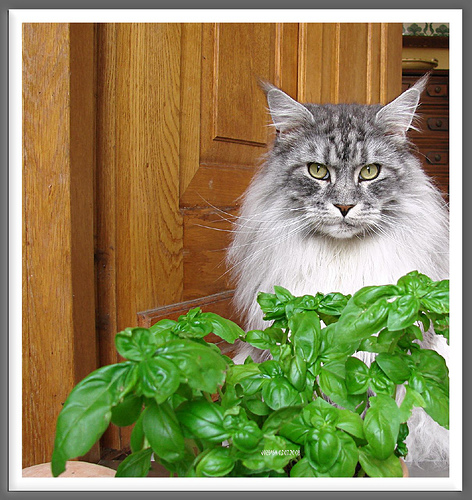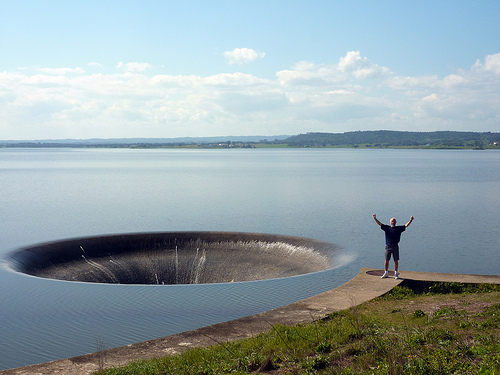6 Tips on What to Do with Those Great Writing Ideas
Today’s guest post is by Alex Limberg:
Everybody has advice on where you can find ideas for your next book and what to do if you run out of inspiration, but what about the opposite problem? What if you have a pool of too many ideas, but none of them seems ready to go; they just feel very . . . thin?
Well, that’s a great problem to have. It means there is something inside you that wants to get onto paper—you just have to create the best possible funnel for it.
How can you make sure an idea gets from your head to your screen in the best way possible? How can you best nurture and support your idea?
Here are my most effective steps to making the most out of those simmering ideas:
- Write Down Your Ideas Immediately
Whenever that idea shows itself to you, be ready to scribble it down right away without distraction, whether you’re in an office meeting, at a restaurant, or in a lecture at school. Have you ever told yourself you would write that idea down later because you were too busy or too lazy at the moment, and when you wrote it down later—if you remembered it—it felt much less intriguing and much more common?
In the moment your idea comes to you, you have the most direct wire to it—an intuitive hotline—so exploit that fully. Try to articulate your idea as well as possible. You are communicating with your later self, who is sitting down in the future to write your story—make it easy for her to pick your brain!
It’s helpful to always carry pen and paper or a small notebook in your jacket. Or if you have a smartphone that can record voice memos, that’s a hands-free way to capture your ideas.
- Set up Separate Files
Keeping your notes for one single project neatly in one place guarantees you will find them later when you need them. One day thoughts for Project A might come to you, and the next day thoughts for Project B. It’s much easier to spin new bits and pieces further when you have the entire project in one place. You might quickly want to read through a couple of old notes before writing down new ideas because that might spark more ideas.
If you approach writing systematically (as I do), set up a folder for your novel or screenplay with index cards like “Characters” describing the psychology of every main character until you know them well. You can create folders for plot, subplots, settings, themes—whatever you find ideas for.
- Give Your Idea Time
Have you ever been writing a story and didn’t know where to go with it, and the next day a solution came to you with ease? That’s because your mind was diligently working for you while you were asleep. It’s scientifically proven that during sleep our brain is solving problems.
Of course, sleep isn’t always the solution. Generally, you can best solve your creative problems in a laid-back but inquisitive mood. The creative mind is relaxed and playful—the opposite of forcing an idea to develop. Trust your creative motor to function brilliantly.
- It’s about New Combinations
Instead of hammering pieces into each other that almost fit, be patient and search for the exact matching story pieces until it all fits perfectly.
In some way, every possible story has already been written, so in the end it’s always about a new combinations of elements. Therefore, try to combine the story elements you already have in a new way to lead your story into new directions.
Take a dictionary, open it blindly to a random page, point to a spot, open your eyes. Does the word you read trigger an association that helps? Is there a way to combine this new element with the story elements you already have so you can move your story forward? Do this twenty times, and you might be surprised by the new possibilities.
- Be Ready to Trash Your Ideas
Concentrate on your most stunning thoughts and focus all your effort on polishing them to shine. You only have a limited amount of energy and time to put into your stories, so don’t spread yourself too thin.
A weak idea could also be an idea that just isn’t ready yet; maybe it will be at some point in the future, if you keep adding to it.
Maybe the idea looks interesting on paper but hasn’t intrigued you enough yet. Maybe the idea isn’t original enough, which again could just mean that a new combination is missing.
Work against that tendency to settle for the same old, same old, and patiently find your own way of combining things—you will be rewarded with a rich story.
- Why Choose One Idea over Another?
Short answer: because it’s “talking to you” the loudest. Out of all the ideas you deem ripe enough, pick the one you feel most compelled to breathe some life into.
And then you completely immerse yourself in the feeling of the story, get drunk on your idea, and write and write.
What are your favorite strategies to handle your ideas? Is there some secret you’ve found extremely helpful for developing stories? Let us know in the comments!
 Alex Limberg lives in Austria and is the founder of Ride the Pen, a creative writing blog dissecting famous authors (works, not bodies) and includes detailed writing prompts. Train your idea muscles with a six-part writing exercise in his free ebook about “44 Key Questions” to test your story.
Alex Limberg lives in Austria and is the founder of Ride the Pen, a creative writing blog dissecting famous authors (works, not bodies) and includes detailed writing prompts. Train your idea muscles with a six-part writing exercise in his free ebook about “44 Key Questions” to test your story.












Terrific article here. Especially the advice on how to pick and choose between your ideas. Every writer feels like they have great ideas, and I have struggled with this issue in deciding which way to go with my first novel. But some topics and ideas will resonate more widely, and garner a better chance of getting read, especially for first time authors just starting out, like myself.
Hey Lisa! Yes, and if you are passionate about your project, it will 100% show through in the end result. What people will want to read is your worldview, your angle, your passion. Follow your heart! 🙂
Excellent tips, Alex. I have “trashed” a number ideas, chapters, short stories by storing them in a separate word file entitled “cut but has potential.” And I definitely prioritize projects by which ones haunt me the most. Thanks for this article – best of luck!
Julie
You put them in the attic instead of in the trash can, so to speak. 🙂 You never know what you can use in the future and what one will feel like going back to. All the best for your writing, may the muse be with you!
Perfect post! Thanks for sharing! I already do these things and it’s nice to see others do, too. Now my secret is out.
Cheers!
S.J. Francis
Good to hear you are already doing these things. You probably have a lot of writing experience. Yessss, let’s break all the secrets…!